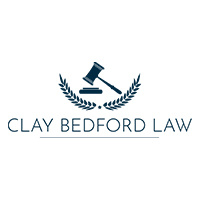 West Point Felony Lawyers, California
West Point Felony Lawyers, California
Not enough matches for West Point Felony lawyer.
Below are all West Point Criminal lawyers.
Sponsored Lawyers
1-10 of 14 matches
Criminal, DUI-DWI, Misdemeanor, Felony, Traffic
I am an attorney licensed to practice law in the State of California. My practice is limited to criminal defense and juvenile cases. The criminal cases I am accepting include everything from trespass to driving under the influence to murder. I have tried cases ranging from trespass to murder, including a death penalty case. I have lost track of the number of trials I have done, but the number is in the hundreds. The juvenile cases I accept include delinquency cases (representing minors charged with crimes) and dependency cases (usually representing parents who are charged with neglecting their children (often due to drug abuse) where the county has taken the children away from the parents and may be trying to terminate the parent's parental rights so the children can be placed for adoption.
(more)Criminal
Counsel for California Constitutional Rights Foundation and Election Integrity Project, California at Bailey & Romero
(more)DUI-DWI, Criminal
Rob L. Woelfel is the sole criminal attorney for the Woelfel Law Firm, where he combines zeal, pragmatism, and personalization for each client’s case; He has seen ample success in criminal cases involving murder, DUI, sexual assault, robbery, narcotics offenses, and juvenile crimes, amongst others. A respected trial lawyer with nearly two decades of criminal law experience, Rob aims to provide exceptional results. Rob received his admittance into the California Bar Association in 2007, where he went on to work as a prosecutor. He left prosecution for defense and became a founding partner in the civil rights litigation firm Loughrey & Woelfel LLP. Around thirteen years ago, Rob moved north and established his firm Woelfel Law where he practices today. He is a member of the National Association of Criminal Defense Lawyers and The American Trial Lawyers Association. After working in several areas of criminal defense, his primary focus has shifted to DUIs, though he still works on a variety of misdemeanor and felony defense cases. He represents clients all over northern California in various counties, El Dorado, Placer, Mono, Sacramento, Alpine, and more. One of his most revered cases was the reversal of Ms. Susan Greenburg’s first-degree murder conviction, which led to her release after 16 years of wrongful incarceration. Rob can be seen in the documentary “Abused” regarding the Greenburg case. When he is not challenging prosecutors in the courtroom, he enjoys competitive sailing and spending time with his wife and four children. He has made positive relationships with several DAs, court officials and staff, and local legal agencies.
(more)






